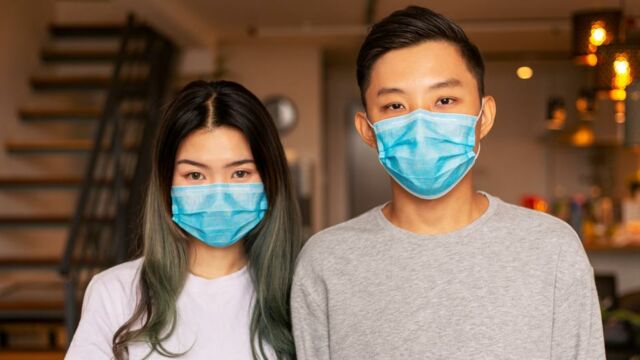Coronavirus: Can You Catch COVID-19 More Than Once?

Can the virus be reactivated as a result of immunity-related problems or changes in the virus's composition and makeup? In South Korea, cases have been recorded of patients testing positive for the COVID-19 virus after they were originally thought to have recovered from it. Let's explain.
Can you catch the coronavirus more than once? This is now a real concern after patients in South Korea, who first tested negative for the virus after being discharged from the hospital. have been tested positive once again. And judging from the figures that were recently released by the Korea Centres for Disease Control and Prevention (KCDC) on 19th April, it seems we are right to be concerned.
Discover our latest podcast
As Yahoo News reported, sixteen people who were considered to be cured of the COVID-19 virus have apparently been reinfected, on average 13 days after the end of the quarantine and as Reuters reported on April 13, 116 similar cases had previously been recorded in the country. Another astonishing revelation is that of these 179 patients who are said to have been reinfected, the majority were between 20-29 years old and counted for 41 of the cases, whereas 32 of these cases involved people between the ages of 50 and 59.
More under this adMore under this adA poorly understood immunology
In a recent press release, the KCDC's executive director Jeong Eun Jyeong said he did not know exactly whether the patients had simply been ‘reactivated’ or ‘reinfected' by the disease. Researchers have observed that when a patient catches the virus, they develop an immune response and create antibodies to fight off the infection. Normally, they didn’t believe it was possible to catch COVID-19 more than once.
However, there is still the possibility that the virus can mutate, just like the flu, whose vaccine is regularly renewed for the same reason. But in terms of the coronavirus, no changes have yet been observed.
More under this adMore under this adResearcher Jean-Claude Sirard from the Institut Pasteur (Pasteur Institute) in Lille remains cautious in regards to its mutative abilities and said in March to French publication La Voix du Nord:
SARS-CoV2 seems to have limited genetic variability in comparison to the flu. Little is currently known about the immunology of the virus.More under this adMore under this ad
Several paths have been studied
On the contrary, Jeong Eun-Kyeong believes that these cases may have actually been false positives due to the fact that COVID-19 tests are not always 100% reliable. He believes it is also possible that these patients could have still had the virus in their system, but a version of it that was not infectious to others and weak enough to mean the patient wasn’t showing symptoms. But the virus, which had remained dormant, could in fact cause a later aggravation and further problems if it was to reach the lungs. As the director later explained, the KCDC will be launching an epidemiological investigation:
While we are putting more weight on reactivation as the possible cause, we are conducting a comprehensive study on this. There have been many cases when a patient during treatment will test negative one day and positive another.More under this adMore under this ad
South Korea was one of the first countries to be affected by the pandemic but has ‘only’ had 10,635 cases, of which 232 were fatal, thanks to their screening program which is one of the largest and best in the world. As a result, South Korea has been ranked the third safest state in the COVID-19 epidemic and these cases will continue to be closely monitored.